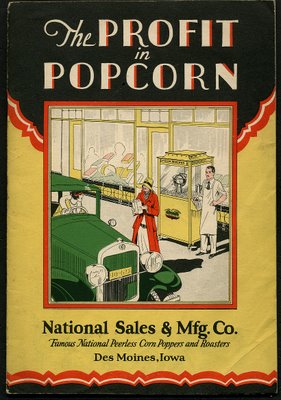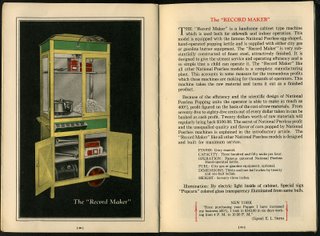 As mentioned previously, the Orpheum at 208-8th street eventually reached a checquered point in its history when it became a burlesque house on the Mutual circuit, from 1925 to 1928, before a final attempt to rescue its reputation by becoming The President Theatre just prior to The Crash.
As mentioned previously, the Orpheum at 208-8th street eventually reached a checquered point in its history when it became a burlesque house on the Mutual circuit, from 1925 to 1928, before a final attempt to rescue its reputation by becoming The President Theatre just prior to The Crash.My great uncle, Leo Myron Satterlee (he, that crashed the "State Fair" premiere party some years later) found himself on a date there. He was living with someone who took in roomers, and it was one of these very roomers that led to the date. As Leo tells it:
Pearl [his househost] mentioned that while I was gone, a new theater had opened up in town, and she would like to go. I had never seen this girl [the roomer] before but Pearl said, "why don't we get reservations, make a foursome, and go see the show?" She called the theater but we could not get them for that night, so she made them for the next night. It turned out to be a burlesque stage show with live actors. Some of the skits were pretty risque for that time. I was embarrassed and the girl just slid down and would not look at the stage. She finally left before the show finished. In one of the skits, a man came out carrying a rooster and a lady carrying a kitten... [I think we've all probably heard this joke before!]
This Garrick Theater did not have shows every night of the week and once they advertised a men's-only show about the ravages of venereal disease. It was sponsored by most of the big companies in town, including the company I worked for. One night, several of the fellows got together and went. It showed actual pictures of what happened to the body of a victim. I decided then and there I would never chance such a thing. One of the fellows knew one of the ushers, as they were all volunteers from various places in town. He told us that one night, two girls dressed like boys came and were seated when the head usher got suspicious and challenged them. One of them cocked her head, looked up at him and said, "Yes, we have no bananas."
An S. Barger took over management duties under the Garrick monicker, and Joseph Oppenheimer--of the Mutual Burlesque Association--promised the theater would present "high standard shows", in an attempt to refute the "abuse" the term "burlesque" had suffered of late!








